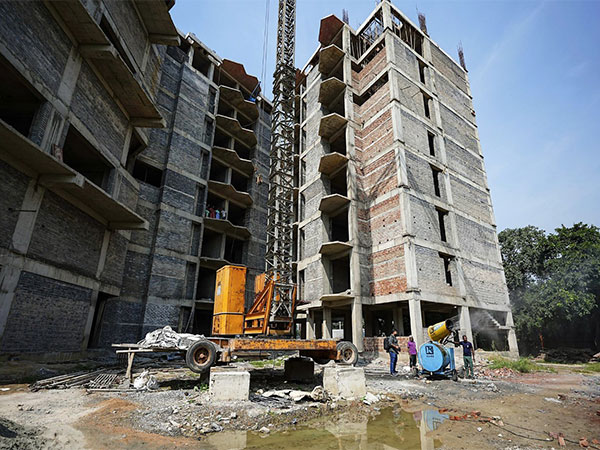
Mumbai: Despite all-time high markets and high double-digit returns in mutual funds, report by FICCI-ANAROCK, reveals that 59 per cent of respondents choose real estate as the most preferred investment option.
According to "Homebuyer Sentiment Survey - H1 2024", the Indian real estate market is experiencing significant changes, with evolving buyer preferences and market trends, according to the
A majority, 67 per cent, are buying properties for personal use, while 33 per cent are investing.
However, demand for ready-to-move homes has seen a noticeable decline.
The current ratio of ready homes to new launches is 20:25, compared to 46:18 in H1 2020, indicating a shift towards new projects. Additionally, there is a growing preference for larger homes, with 51 per cent of respondents favoring 3BHK units.
While properties within the Rs45 to 90 lakh range remain popular, there's a shift toward premium offerings, with 28 per cent of buyers now preferring homes priced between Rs90 lakh and Rs1.5 crore.
Apartments continue to dominate as the most preferred property type, accounting for 58 per cent of choices, though residential plots are gaining traction, particularly in southern cities.
Key buyer concerns include timely project completion (98 per cent of respondents), construction quality (93 per cent), and well-ventilated homes (72 per cent).
Rising rental rates in major cities are driving investor interest, with 57 per cent of buyers purchasing properties for rental income.
On the other hand, affordable housing is struggling to meet expectations, as over 53 per cent of homebuyers express dissatisfaction due to issues related to location, construction quality, and unit sizes.
The survey also indicates that home loan interest rates below 8.5 per cent would have little impact on buying decisions for 71 per cent of respondents, but rates exceeding 9 per cent would significantly influence 87 per cent of potential buyers.
During his keynote address, Pramod Rao, Executive Director of SEBI, emphasized the importance of regulatory frameworks in fostering sustainable growth in the sector.
"Investor confidence is vital for the industry's long-term success, and SEBI's focus on transparency and governance has been key in building this trust," Rao stated.
Raj Menda, Chairman, FICCI Committee on Urban Development and Real Estate and Chairman of the Supervisory Board, RMZ Corporation, stated, "The commercial real estate sector is also thriving, supported by 1,600 Global Capability Centers and emerging secondary markets."
He added, "As the sector evolves, technological advances and interest in alternative assets like REITs and distressed properties highlight the need for diversification and alignment with global trends, positioning the industry for new opportunities."
Anuj Puri, Chairman and Founder of ANAROCK Property Consultants, says, "The survey provides all industry stakeholders with critical insights into the Indian property market from a consumer perspective."
Sanjay Dutt, Managing Director and CEO of Tata Realty and Infrastructure, highlighted the significant evolution of the real estate sector, particularly with the shift from traditional REITs to smaller-scale REITs (SM REITs).
He emphasised the advantages of fractional ownership, noting how it allows investors to access high-quality assets with lower capital commitments, democratising real estate investment.